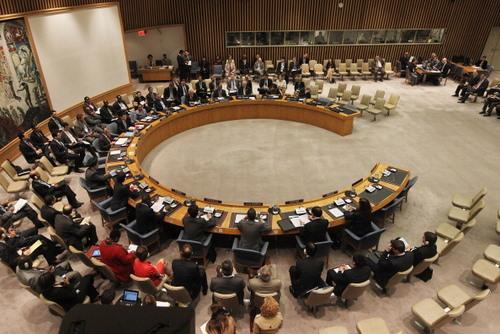UN’s third front won’t change stance on Arab Spring interventions
If you thought India, Brazil and South Africa were going to emerge as strong backers of the pro-democracy rebels of Arab Spring, think again.
According to the BBC, the so-called IBSA group has just as much anxiety about sending in troops or calling down air strikes to destabilize dictators as China and Russia do — though for different reasons.
As vibrant democracies with a declared commitment to championing human rights, they could have been expected to back the West's support for selective intervention.
In practice, though, they've mostly lined up with Russia and China in key debates over Libya and Syria, strengthening dismay about the Security Council's inability to respond in a unified way to the deepening crisis in Syria.
India may well be thinking that its ally and neighbor Iran — its foil to China's Pakistan, in some ways — lies at the eventual end of the intervention path. But in general all three states of the IBSA "third front" oppose UN interventions because they are skeptical that the motives are purely altruistic, says the BBC.
Mistrust of Western intentions became the prism through which the three countries approached negotiations on a resolution condemning the Syrian government's suppression of largely civilian protests.
So, what's the upshot? In Syria, IBSA claimed to represent a legitimate alternative to military intervention. But in reality, human rights groups, as well as the western backers of regime change, say that amounted to doing nothing.
And for civilian Syrian protesters, Ibsa's approach has in practice meant supporting a repressive regime rather than those calling for democratic change. It has meant not a new voice on the Security Council speaking on their behalf, but the absence of one.
Every day, reporters and producers at The World are hard at work bringing you human-centered news from across the globe. But we can’t do it without you. We need your support to ensure we can continue this work for another year.
Make a gift today, and you’ll help us unlock a matching gift of $67,000!
